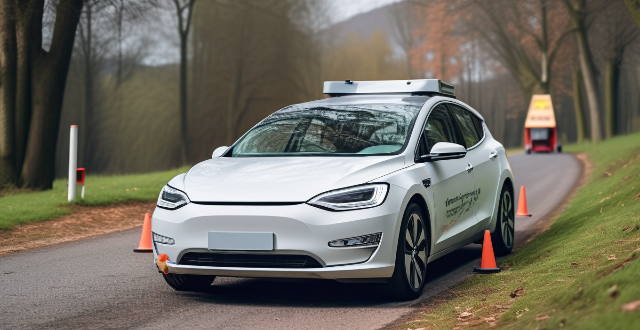The text compares the maintenance costs of electric cars and traditional gasoline-powered vehicles. Electric cars don't require oil changes but may need battery replacement, which is costly. They use regenerative braking, reducing brake wear. Despite their weight causing faster tire wear, they have a simplified cooling system and minimal transmission maintenance. Traditional cars require regular oil changes, engine maintenance, and frequent brake replacements. They generally weigh less, resulting in slower tire wear but have a complex cooling system and multi-speed transmissions that need regular maintenance. Overall, electric cars have lower maintenance costs due to fewer moving parts and no need for certain maintenance items like oil changes and engine tune-ups. However, individual driving habits and local repair costs should be considered when comparing maintenance expenses.

Comparison of Maintenance Costs between Electric and Traditional Cars
Electric cars and traditional gasoline-powered vehicles have different maintenance requirements and costs. Here's a detailed comparison:
1. Battery Maintenance
1.1 Electric Cars:
- No Oil Changes: Electric cars don't use oil, so there's no need for regular oil changes.
- Battery Replacement: The battery is the most expensive component to replace in an electric car. However, modern batteries are designed to last for many years (often over 100,000 miles) before they need replacement.
1.2 Traditional Cars:
- Oil Changes: Regular oil changes are necessary for traditional cars to maintain engine performance and longevity.
- Engine Maintenance: Gasoline engines require more frequent maintenance like tune-ups, spark plug replacements, and belt changes.
2. Brake Maintenance
2.1 Electric Cars:
- Regenerative Braking: Electric cars use regenerative braking, which reduces wear on brake pads and rotors, leading to less frequent brake replacements.
2.2 Traditional Cars:
- Frequent Brake Replacements: Traditional cars rely solely on friction brakes, which wear out faster and need more frequent replacements.
3. Tire Maintenance
3.1 Electric Cars:
- Heavier Weight: Electric cars tend to be heavier due to the weight of the battery pack, which can lead to slightly faster tire wear.
3.2 Traditional Cars:
- Lighter Weight: Traditional cars are generally lighter, resulting in slower tire wear compared to electric cars.
4. Cooling System Maintenance
4.1 Electric Cars:
- Simplified Cooling System: Electric cars have a simpler cooling system since they don't need to cool an engine. This results in fewer components that can fail or require maintenance.
4.2 Traditional Cars:
- Complex Cooling System: Traditional cars have a complex cooling system that requires regular maintenance, including coolant flushes and water pump replacements.
5. Transmission Maintenance
5.1 Electric Cars:
- Single-Speed Transmission: Most electric cars have a single-speed transmission, which requires minimal maintenance.
5.2 Traditional Cars:
- Multi-Speed Transmission: Traditional cars often have multi-speed transmissions that require regular maintenance, including fluid changes and potential repairs or replacements.
In conclusion, while electric cars may have higher upfront costs associated with battery replacement, their overall maintenance costs are generally lower than those of traditional gasoline-powered vehicles. This is primarily due to fewer moving parts and the absence of certain maintenance items like oil changes and engine tune-ups. However, it's essential to consider individual driving habits and local repair costs when comparing maintenance expenses between electric and traditional cars.